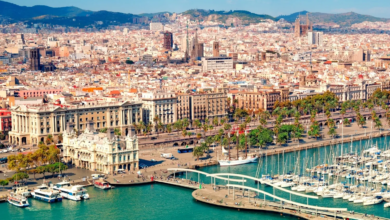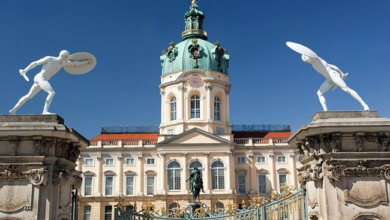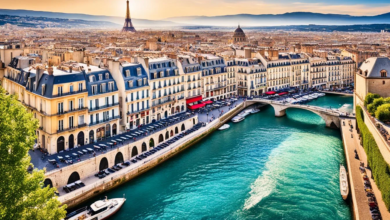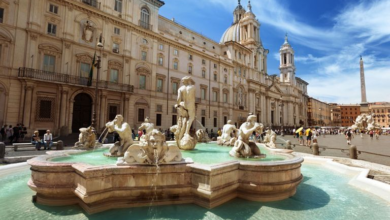The most important tourist attractions in Equatorial Guinea
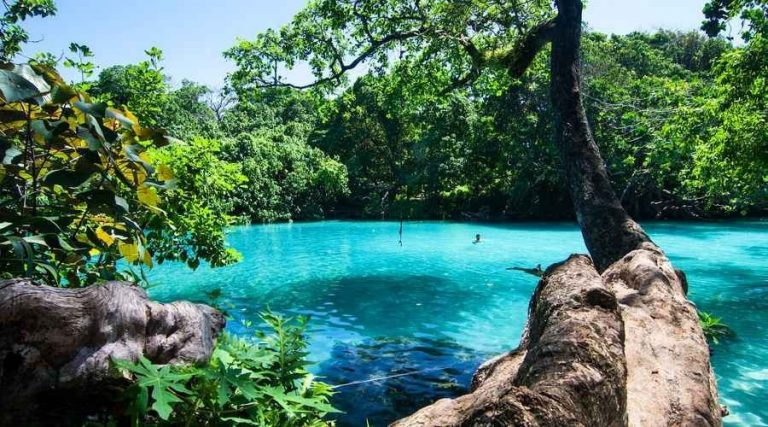
Equatorial Guinea is a small country located in Central Africa that is still emerging as a tourist destination. The country is known for its tropical rainforests, beautiful beaches, and diverse wildlife. Here are a few things to know about tourism in Equatorial Guinea:
- Natural Beauty: Equatorial Guinea is home to several national parks and nature reserves that offer opportunities for wildlife spotting, hiking, and birdwatching. Some of the most popular parks include Monte Alén National Park, Pico Basilé National Park, and the Muni River Estuary.
- Beaches: Equatorial Guinea has several beautiful beaches, including those on the island of Bioko and the mainland city of Bata. Visitors can enjoy swimming, sunbathing, and water sports such as kayaking and fishing.
- Cultural Heritage: Equatorial Guinea has a rich cultural heritage, with several ethnic groups and languages represented. Visitors can learn about traditional customs and crafts at markets such as the Bata Market and the Ebebiyin Market.
- Cuisine: Equatorial Guinea’s cuisine is influenced by its African and Spanish heritage, with dishes such as chicken with peanut sauce and plantains. Visitors can try local specialties at restaurants such as the La Luna restaurant in Malabo and the El Sitio restaurant in Bata.
- Adventure Sports: Equatorial Guinea offers opportunities for adventure sports such as hiking, fishing, and scuba diving. Visitors can explore the country’s rainforests and coastlines on guided tours or with local operators.
- Safety: While Equatorial Guinea has made efforts to improve safety and security for visitors, the country still has a high crime rate and visitors should exercise caution and follow local laws and customs. It is recommended to avoid walking alone at night, to use official taxis, and to keep valuables out of sight.
- Accommodations: Equatorial Guinea has a range of accommodations for visitors, from budget-friendly guesthouses to luxury hotels. Visitors can choose from beachfront properties, city hotels, and eco-lodges, depending on their preferences and budget.
Overall, Equatorial Guinea is a unique and emerging destination for travelers seeking adventure, natural beauty, and cultural experiences. The country has made efforts to promote sustainable tourism practices and improve safety and security for visitors, making it a rewarding and memorable destination for those willing to explore its offerings.
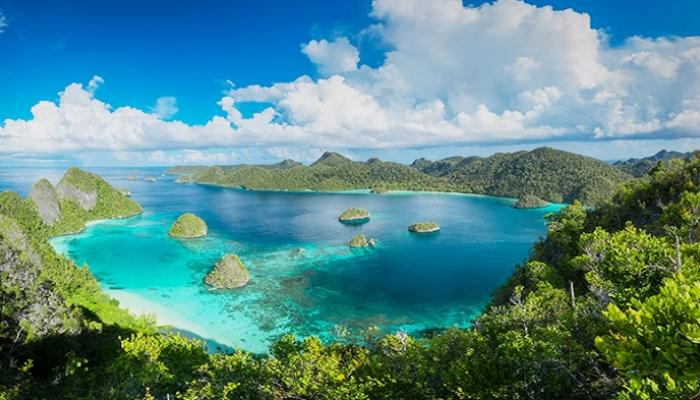
Certainly, here are a few more details about tourism in Equatorial Guinea:
- Festivals: Equatorial Guinea celebrates several festivals throughout the year, including the Independence Day celebrations on October 12th, the Corpus Christi festival in June, and the International Music Festival in Malabo in December. These festivals offer opportunities to experience local culture and traditions.
- Wildlife: Equatorial Guinea is home to several species of primates, including chimpanzees, mandrills, and colobus monkeys. Visitors can see these animals in their natural habitats at the Monte Alén National Park and other nature reserves.
- Archaeological Sites: Equatorial Guinea has several archaeological sites that offer insights into the country’s pre-colonial history. The most well-known site is the UNESCO World Heritage Site of Cueva de las Manos, which features rock paintings believed to be over 4,000 years old.
- Sports: Equatorial Guinea has a strong soccer culture and visitors can attend local matches and games. Additionally, the country offers opportunities for water sports such as fishing, kayaking, and surfing.
- Accessibility: Equatorial Guinea is not the most accessible destination for tourists, as it lacks a developed tourism infrastructure and has limited transportation options. The best way to travel around the country is by hiring a driver or joining a guided tour.
- Language: Spanish and French are the official languages of Equatorial Guinea, but several local languages are also spoken. Visitors may find it helpful to learn some basic phrases in Spanish or French before traveling to the country.
- Visa Requirements: Visitors to Equatorial Guinea are required to obtain a visa prior to arrival. The visa application process can be lengthy and it is recommended to apply well in advance of travel dates.
- Medical Facilities: Equatorial Guinea has limited medical facilities and visitors should ensure that they have adequate travel insurance that includes medical evacuation coverage in case of emergencies.
In summary, Equatorial Guinea offers unique and diverse attractions and experiences for visitors, from wildlife and archaeological sites to festivals and sports. The country has made some efforts to promote sustainable tourism practices and improve safety and security for visitors. While the country may not be the most accessible destination for tourists, those who are willing to explore its offerings can discover a fascinating and rewarding experience.
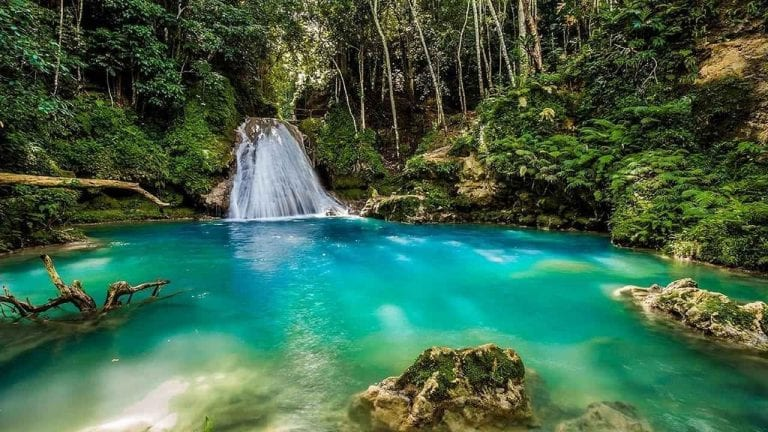
Certainly, here are a few more details about tourism in Equatorial Guinea:
- Climate: Equatorial Guinea has a tropical climate with high humidity and temperatures that remain fairly constant throughout the year. The country experiences two rainy seasons, from February to May and from September to December, which can affect travel plans.
- Music and Dance: Equatorial Guinea has a rich musical tradition, with several genres of music including traditional folk music, salsa, and zouk. Visitors can enjoy live music and dance performances at venues such as the Centro Cultural Hispano-Guineano in Malabo and the Centro Cultural de España in Bata.
- Art: Equatorial Guinea has a growing contemporary art scene, with several galleries and exhibitions showcasing the work of local and international artists. The National Museum of Equatorial Guinea in Malabo also features a collection of traditional and contemporary art.
- Eco-Tourism: Equatorial Guinea has several eco-tourism initiatives that focus on sustainable tourism practices and environmental conservation. The Bioko Island Malaria Control Project, for example, offers opportunities for visitors to participate in research and conservation efforts on the island.
- Business Travel: Equatorial Guinea is an important center for oil and gas production and attracts many business travelers. The country has several conference centers and meeting facilities, including the Sipopo Conference Center in Malabo.
- Religious Sites: Equatorial Guinea has several religious sites that are important to the country’s diverse communities. The Basilica of the Immaculate Conception in Malabo is a prominent Catholic church, while the Ela Nguema Mosque in Bata is one of the largest mosques in Central Africa.
- Language Schools: Equatorial Guinea offers language schools that teach Spanish, French, and local languages. Visitors can enroll in language immersion programs and homestays to improve their language skills and experience local culture.
- Shopping: Equatorial Guinea has several markets and shopping centers that offer a range of goods, from traditional handicrafts to imported luxury items. The Malabo Shopping Center and the Bata Market are popular destinations for shopping.
- Cultural Tours: Equatorial Guinea offers cultural tours that allow visitors to learn about the country’s history, customs, and traditions. These tours often include visits to museums, markets, and cultural sites such as the Fort of San Carlos in Luba.
Overall, Equatorial Guinea offers a range of unique and diverse attractions and experiences for visitors, from music and art to eco-tourism and business travel. While the country may not be the most accessible destination for tourists, those who are willing to explore its offerings can discover a fascinating and rewarding experience.
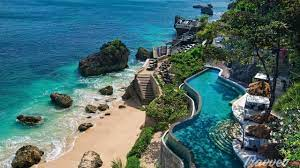
Certainly, here are a few more details about tourism in Equatorial Guinea:
- Architecture: Equatorial Guinea has a mix of colonial and modern architecture, with buildings such as the Presidential Palace in Malabo and the Cathedral of Santa Isabel showcasing the country’s history and culture. Visitors can also see traditional architecture in villages such as Mongomo and Bata.
- Island Hopping: Equatorial Guinea has several islands off its coast that offer opportunities for island hopping and beach vacations. Bioko Island is the largest and most developed, while Annobón Island is known for its volcanic landscapes and marine life.
- Nightlife: Equatorial Guinea has a vibrant nightlife scene, especially in Malabo and Bata, with bars and nightclubs that offer live music and entertainment.
- Sports Fishing: Equatorial Guinea’s coastlines offer opportunities for sports fishing, with a variety of fish species such as marlin, sailfish, and yellowfin tuna found in the waters.
- Film Festivals: Equatorial Guinea hosts several film festivals throughout the year, including the African Film Festival in Malabo and the International Documentary Film Festival in Bata.
- Transportation: Equatorial Guinea has limited transportation options, with most visitors relying on taxis or private drivers to get around. The country is also served by several domestic airlines.
- Currency: The official currency of Equatorial Guinea is the Central African Franc (CFA), which is also used by several other countries in the region. Visitors should be aware that credit cards are not widely accepted and it is recommended to bring cash in Euros or US dollars.
- Dress Code: Equatorial Guinea has a conservative dress code, especially in rural areas and religious sites. Visitors should dress modestly and cover their shoulders and knees when visiting these areas.
- Photography: Equatorial Guinea offers many opportunities for photography, from its natural landscapes to its cultural heritage. However, visitors should be aware that some locals may be sensitive to having their picture taken without permission.
- Internet Access: Equatorial Guinea has limited internet access, especially outside of major cities. Visitors should not rely on internet access for travel plans and communication.
Overall, Equatorial Guinea offers a range of unique and diverse attractions and experiences for visitors, from island hopping and sports fishing to film festivals and architecture. The country has made some efforts to promote sustainable tourism practices and improve safety and security for visitors, making it a rewarding and memorable destination for those willing to explore its offerings.
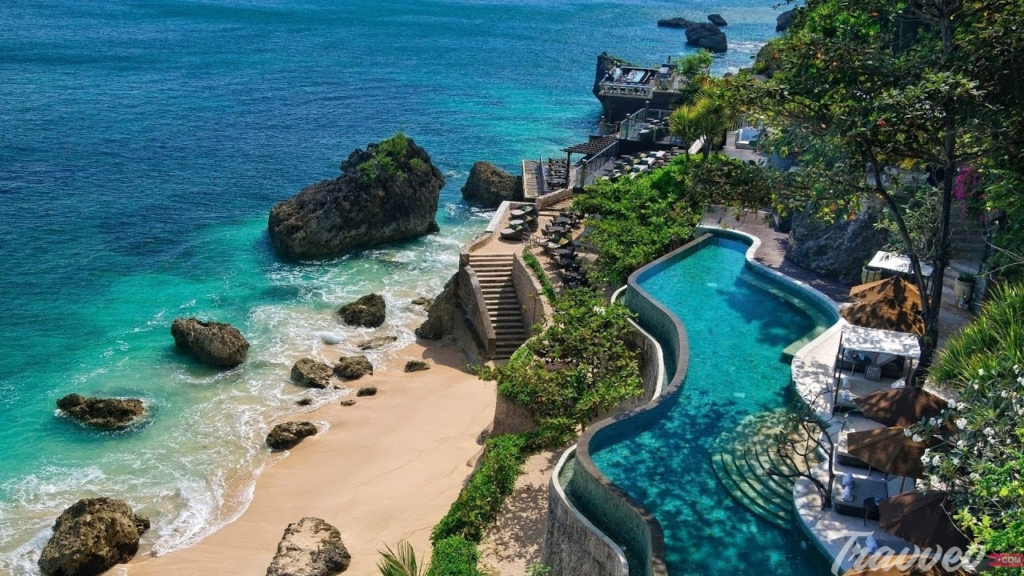
Certainly, here are a few more details about tourism in Equatorial Guinea:
- Education: Equatorial Guinea has a growing education sector, with several universities and schools offering courses in a range of subjects. Visitors can enroll in language courses, cultural immersion programs, and other educational programs.
- Health and Wellness: Equatorial Guinea offers several health and wellness facilities, including spas, yoga centers, and fitness studios. Visitors can also enjoy natural hot springs and other therapeutic treatments.
- Cuisine: Equatorial Guinea’s cuisine is influenced by its African and Spanish heritage, with dishes such as grilled fish, plantains, and cassava. Visitors can try local specialties at restaurants such as the Restaurante Los Mellizos in Malabo and the Restaurante La Luna in Bata.
- Festivals and Events: Equatorial Guinea celebrates several festivals and events throughout the year, including the International Music Festival in Malabo, the Bioko Marathon, and the Equatorial Guinea Fashion Week.
- Volunteer Opportunities: Equatorial Guinea offers volunteering opportunities for visitors who want to make a difference in the local community. Volunteer programs focus on education, health, and environmental conservation.
- Family Travel: Equatorial Guinea is a family-friendly destination, with several attractions and activities that cater to children and families. These include beach vacations, wildlife spotting, and cultural tours.
- LGBTQ+ Travel: Equatorial Guinea has a mixed record on LGBTQ+ rights, with same-sex relationships illegal and punishable by imprisonment. Visitors who identify as LGBTQ+ should exercise caution and avoid public displays of affection.
- Photography Tours: Equatorial Guinea offers photography tours that allow visitors to capture the country’s natural beauty and cultural heritage. These tours are led by experienced photographers and guides who can offer tips and insights.
Overall, Equatorial Guinea offers a range of unique and diverse attractions and experiences for visitors, from health and wellness facilities to family travel and photography tours. The country has made some efforts to promote sustainable tourism practices and improve safety and security for visitors, making it a rewarding and memorable destination for those willing to explore its offerings.
Certainly, here are a few more details about tourism in Equatorial Guinea:
- Cultural Experiences: Equatorial Guinea offers several cultural experiences that allow visitors to learn about the country’s history, customs, and traditions. These experiences include visiting local villages, attending festivals and events, and participating in traditional ceremonies and rituals.
- Volunteer Tourism: Equatorial Guinea offers several volunteer tourism opportunities that allow visitors to give back to the local community. These opportunities include teaching English, working on conservation projects, and helping with community development initiatives.
- Adventure Tourism: Equatorial Guinea offers several adventure tourism activities, such as hiking in the Monte Alén National Park, kayaking on the Muni River, and exploring the volcanic landscapes of Annobón Island.
- Birdwatching: Equatorial Guinea is home to several species of birds, including the African grey parrot, the black-casqued hornbill, and the olive-backed sunbird. Visitors can go birdwatching at several nature reserves and parks, such as the Monte Alén National Park and the Pico Basilé National Park.
- Safety: Equatorial Guinea has a mixed record on safety and security, with high levels of crime and political unrest in some areas. Visitors should exercise caution and avoid traveling alone at night or in remote areas.
- Environmental Conservation: Equatorial Guinea has made some efforts to promote environmental conservation, with several initiatives focused on protecting the country’s natural resources and wildlife. Visitors can participate in these initiatives and learn about the country’s conservation efforts.
- Cultural Heritage Sites: Equatorial Guinea has several cultural heritage sites that offer insights into the country’s history and cultural heritage. These sites include the Cueva de las Manos cave paintings, the Fort of San Carlos in Luba, and the National Museum of Equatorial Guinea in Malabo.
- Luxury Travel: Equatorial Guinea offers several luxury travel experiences, such as staying in luxury hotels and resorts, private yacht charters, and helicopter tours. Visitors can also enjoy exclusive dining experiences and private tours of the country’s attractions.
Overall, Equatorial Guinea offers a range of unique and diverse attractions and experiences for visitors, from adventure tourism and birdwatching to luxury travel and cultural experiences. While the country may not be the most accessible destination for tourists, those who are willing to explore its offerings can discover a fascinating and rewarding experience.
Certainly, here are a few more details about tourism in Equatorial Guinea:
- National Parks: Equatorial Guinea has several national parks and reserves that offer opportunities for wildlife viewing and outdoor activities. These include the Monte Alén National Park, the Pico Basilé National Park, and the Monte Temelón Natural Park.
- Fishing Villages: Equatorial Guinea has several fishing villages along its coastline that offer insights into the country’s maritime heritage and traditional way of life. Visitors can explore these villages and learn about the local fishing practices.
- Sports: Equatorial Guinea has several sports facilities and events, such as the African Cup of Nations football tournament and the Bioko Island Marathon. Visitors can also participate in sports activities such as scuba diving, snorkeling, and surfing.
- Night Markets: Equatorial Guinea has several night markets that offer a range of goods, from local handicrafts to street food. These markets are popular with locals and visitors alike and offer a vibrant atmosphere.
- Wildlife Sanctuaries: Equatorial Guinea has several wildlife sanctuaries that offer opportunities for wildlife viewing and conservation. These include the Limbe Wildlife Centre and the Bioko Island Malaria Control Project.
- Museums and Galleries: Equatorial Guinea has several museums and galleries that showcase the country’s history, culture, and art. These include the National Museum of Equatorial Guinea, the Centro Cultural Hispano-Guineano, and the Malabo Art Gallery.
- Cultural Festivals: Equatorial Guinea celebrates several cultural festivals throughout the year, such as the Bantu Festival and the Fang Cultural Festival. These festivals offer insights into the country’s diverse cultural heritage.
- Traditional Crafts: Equatorial Guinea has a rich tradition of traditional crafts, such as weaving, pottery, and carving. Visitors can purchase these crafts in markets and shops throughout the country.
- Language and Cultural Immersion: Equatorial Guinea offers language and cultural immersion programs that allow visitors to learn about the country’s language, customs, and traditions. These programs are often led by local experts and offer a unique and immersive experience.
- Accessibility: Equatorial Guinea is not the most accessible destination for tourists, with limited transportation options and infrastructure. Visitors should be prepared for some challenges and plan ahead to ensure a smooth and enjoyable trip.
Overall, Equatorial Guinea offers a range of unique and diverse attractions and experiences for visitors, from wildlife sanctuaries and traditional crafts to language immersion programs and cultural festivals. While the country may not be the most accessible destination for tourists, those who are willing to explore its offerings can discover a fascinating and rewarding experience.

Certainly, here are a few more details about tourism in Equatorial Guinea:
- Music: Equatorial Guinea has a rich musical heritage, with traditional music styles such as makossa, soukous, and fang. Visitors can attend live music performances and festivals throughout the country, such as the International Music Festival in Malabo.
- Beaches: Equatorial Guinea has several beaches along its coastline that offer opportunities for swimming, sunbathing, and water sports. These include the Sipopo Beach in Malabo and the Chá de Fogo Beach on Annobón Island.
- Wildlife Conservation: Equatorial Guinea has several wildlife conservation initiatives that aim to protect the country’s unique biodiversity. Visitors can participate in these initiatives and learn about the country’s conservation efforts.
- Shopping: Equatorial Guinea has several shopping opportunities, from local markets to modern shopping malls. Visitors can shop for local handicrafts, clothing, and souvenirs at markets such as the Mercado de Mbini in Bata.
- Traditional Medicine: Equatorial Guinea has a rich tradition of traditional medicine, with several plants and herbs used for medicinal purposes. Visitors can learn about these traditional healing practices and participate in workshops and demonstrations.
- Cultural Centers: Equatorial Guinea has several cultural centers that offer insights into the country’s cultural heritage. These include the Centro Cultural Español in Malabo and the Centro Cultural de España in Bata.
- Language: Spanish and French are the official languages of Equatorial Guinea, although several local languages are also spoken. Visitors can learn about the country’s language and linguistic diversity through language immersion programs and cultural activities.
- Religious Sites: Equatorial Guinea has several religious sites that offer insights into the country’s religious heritage. These include the Cathedral of Santa Isabel in Malabo and the Our Lady of the Assumption Cathedral in Bata.
- Business Travel: Equatorial Guinea offers several opportunities for business travel, with several industries such as oil, gas, and mining. Visitors can attend business conferences and events and also explore the country’s cultural and natural attractions.
- Sustainable Tourism: Equatorial Guinea has made some efforts to promote sustainable tourism practices, such as eco-tourism and responsible travel. Visitors can participate in sustainable tourism initiatives and learn about the country’s sustainability efforts.
Overall, Equatorial Guinea offers a range of unique and diverse attractions and experiences for visitors, from music and beaches to wildlife conservation and sustainable tourism. While the country may not be the most well-known or accessible destination for tourists, those who are willing to explore its offerings can discover a fascinating and rewarding experience.
